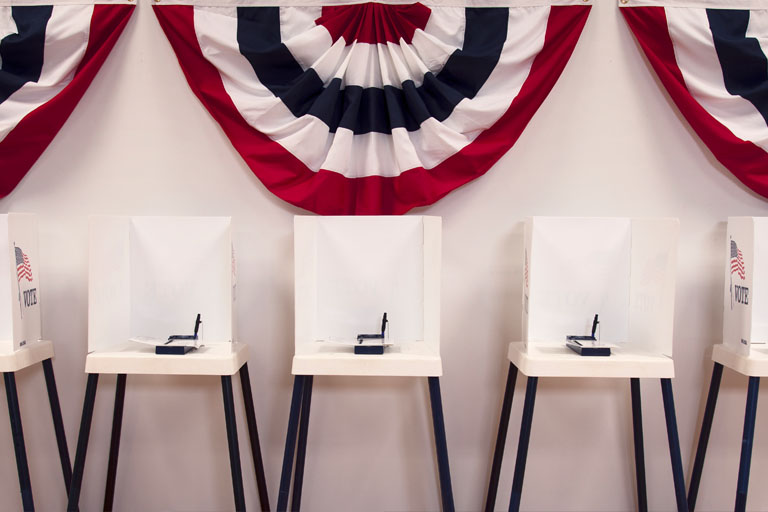Chances are you are reading this after the 2020 General Election. The red, white, and blue streamers have fallen. The balloons have lost their helium. And you may be feeling many things right now:
- Excitement – the ballots are in and perhaps your candidates have won!
- Disappointment – your candidates may not have been successful this term
- Exhaustion – physical and mental – at keeping up with the news, social media posts, and maybe helping campaign for candidates you support
- Motivation – election results are really just the beginning; now comes the true work
- Apprehension – Perhaps your candidates didn’t win, how do you help your pre-college students understand how they are feeling? Or they did win and you want to encourage your students to show their pride, but you also want to ensure they are considerate of others’ feelings?
We can be experiencing any or all of these things at once! To help your family process these emotions and keep the conversation going, we’ve compiled a few tips and resources to explore year-round, regardless of election season.
Knowledge is power. Equip yourself with information.
To say that the U.S. political system is complicated, is an understatement. It’s not uncommon for people to only engage in major political seasons like a presidential election. In fact, based on statistics from ElectProject.org, only an average of 42.8% of the voting eligible population turned out for the last three midterm elections compared to an average of 60.1% for the last three presidential elections[1]. One reason may be that voters don’t feel informed enough about the candidates or the process.
For K-8th grade students, Teaching Tolerance has resources to start the learning process early.
For high school students, check out PBS Learning Media’s Crash Course series on Government and Politics. For recommendations specific to elections, explore these 8-10 minute videos on Political Campaigns, Election Basics, and How Voters Decide.
Practice makes progress. There is no better way to learn than by doing.
Reading articles and textbooks or watching videos about government and politics is not the only way to learn. Help your students learn by getting hands-on experience. Take your student with you to the polls for primaries and elections. Write letters to local, state, and federal leaders about issues and causes you are passionate about. You can even host your own mock campaign, debates, and elections at home or in the classroom!
For toolkits on these and other experiential ideas for 3rd-12th grade students, visit Scholastic.com, iCivics.org, and the Anti-Defamation League’s Teaching about Elections resources.
Know that civic engagement has an emotional impact– for good and bad outcomes.
Most political contests are a zero-sum game; there can only be one winner. When we get involved in civic engagement, no matter how much or how little, there is an emotional impact. It is important to acknowledge the impact and identify how you handle and teach your students to work through those emotions. Use these conversations not only to talk specifically about results of elections, but also as larger occasions to talk about practicing a growth mindset where losing or failure in a specific context is an opportunity to grow, not a final destination.
But the benefits of being civically engaged far outweigh temporary, negative feelings.
We’ve already talked a lot about how civic engagement is a chance to learn through various literature and experiential means. Civic engagement is also about building and strengthening relationships with your family and your community, and it is also important to remember that not all civic engagement has to be connected to politics.
Check out the American Political Science Association’s list of ways to take civic action virtually. From watching local school board meetings to writing letters to the editor of a newspaper, there are a myriad of ways to connect with your community in meaningful ways while staying safe and healthy.
The views and opinions expressed in linked resources are those of the authors and do not necessarily reflect the official policy or position of Indiana University. Any content provided by the authors are of their opinion and are not intended to malign any religion, group, club, organization, company, or individual.
We want to hear from you!
Is there a topic or resource you’d like to hear more about? We want to share content that is meaningful to you. Share your proposed ideas with Community & School Partnerships by sending suggestions to cpartner@iu.edu.
[1] http://www.electproject.org/home/voter-turnout/voter-turnout-data


